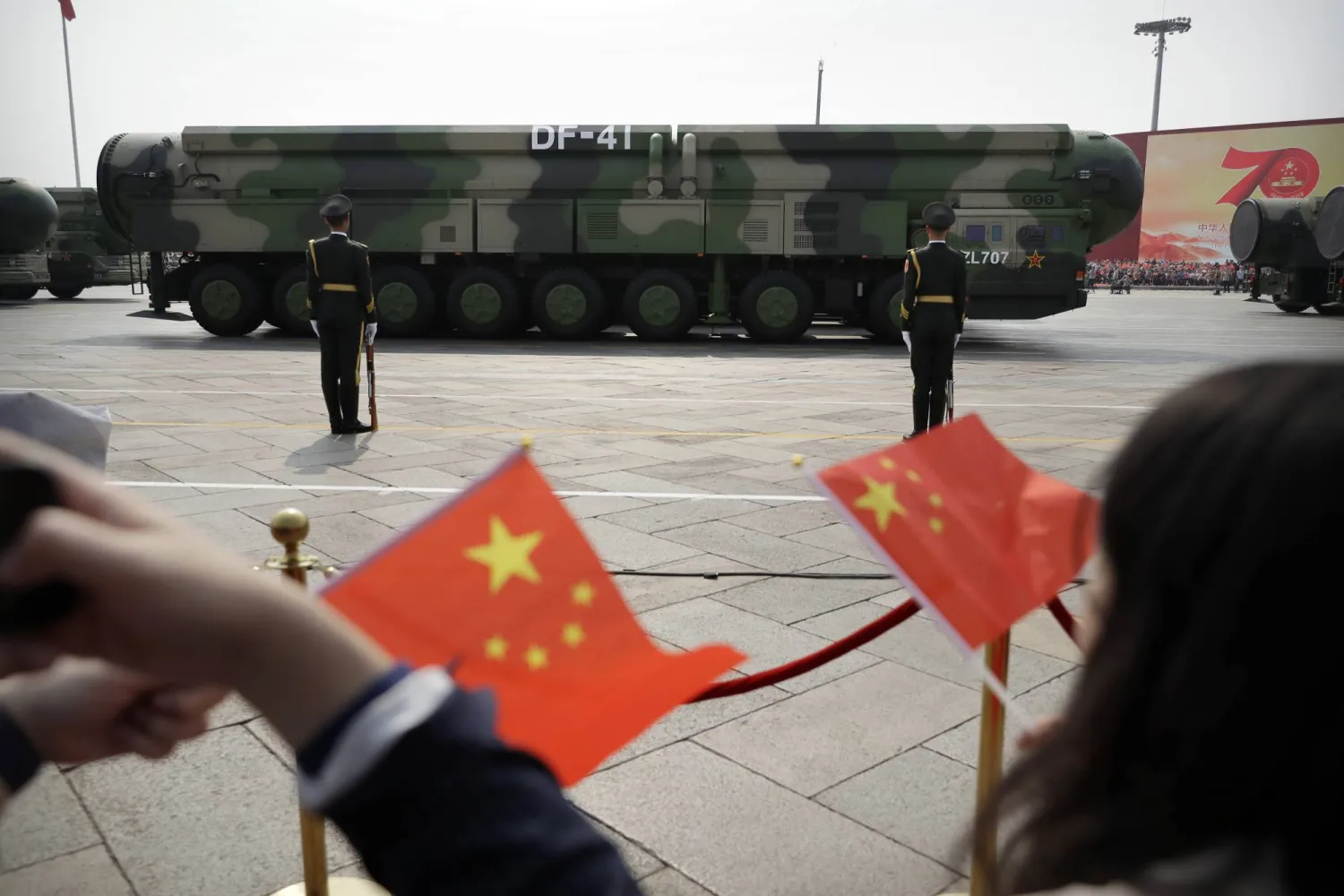China test-fired an intercontinental ballistic missile into the Pacific Ocean on Wednesday.
The ICBM carried a dummy warhead and fell into a designated area of the sea, the Defense Ministry said in a statement.
The launch by the People's Liberation Army was part of routine annual training.
It added the launch complied with international law and was not directed against any country or target.
It is unclear how often China conducts tests over such a distance. In 1980, China launched an ICBM into the South Pacific.
A map published in Chinese newspapers at the time showed the target area as roughly a circle in the center of a ring formed by the Solomon Islands, Nauru, the Gilbert Islands, Tuvalu, western Samoa, Fiji and the New Hebrides.
China Test-fires Intercontinental Ballistic Missile into Pacific Ocean

FILE - Spectators wave Chinese flags as military vehicles carrying DF-41 nuclear ballistic missiles roll during a parade to commemorate the 70th anniversary of the founding of Communist China in Beijing on Oct. 1, 2019. (AP Photo/Mark Schiefelbein, File)

China Test-fires Intercontinental Ballistic Missile into Pacific Ocean

FILE - Spectators wave Chinese flags as military vehicles carrying DF-41 nuclear ballistic missiles roll during a parade to commemorate the 70th anniversary of the founding of Communist China in Beijing on Oct. 1, 2019. (AP Photo/Mark Schiefelbein, File)
لم تشترك بعد
انشئ حساباً خاصاً بك لتحصل على أخبار مخصصة لك ولتتمتع بخاصية حفظ المقالات وتتلقى نشراتنا البريدية المتنوعة







